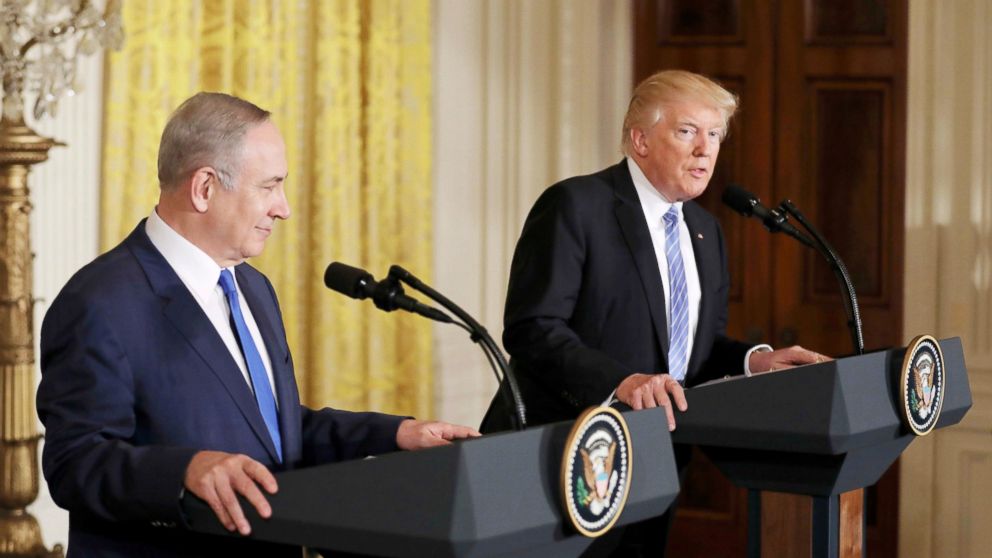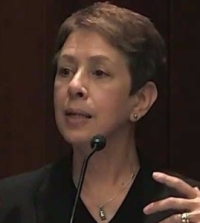The Future of US-Israel Defense Cooperation and Trump’s Second Term as President

The Future of US-Israel Defense Cooperation and Trump’s Second Term as President
Over the past several decades, defense collaboration between the U.S. and Israel has proven to be a cornerstone of both countries' security policies, encompassing intelligence-sharing, military technology development, and strategic operations in the Middle East. Under Trump’s first administration, this relationship deepened, marked by increased arms deals, heightened diplomatic support for Israel's defense interests, and the recognition of Jerusalem as Israel's capital. During the recent Gaza war, the Biden administration has shown robust support for Israel's defense needs, expediting resupplies for the Iron Dome and other defense systems to counter Hamas rocket fire. Additionally, in response to escalating tensions with Hezbollah and Iran's involvement in the conflict, the U.S. has deployed military assets to the region, signaling a commitment to Israel's security against broader regional threats.
This special webinar will explore the evolving landscape of U.S.-Israel defense cooperation, with a focus on the implications of Donald Trump’s second term in office. Our panel of policy experts will examine the key questions surrounding the future of this alliance in light of contemporary geopolitical challenges. How might a renewed Trump administration impact defense funding, arms sales, and joint military exercises? What are the potential benefits and risks for Israel’s defense strategy, especially considering evolving regional dynamics in the Middle East, such as the Abraham Accords and shifting relations with Iran?
SPEAKERS:
Shoshana Bryen is Senior Director of The Jewish Policy Center and Editor of inFOCUS Quarterly. A leading specialist in U.S. defense policy and Middle East affairs, she is the former Executive Director and Senior Director for Security Policy at JINSA. She has worked with the Strategic Studies Institute of the U.S. Army War College and the Institute for National Security Studies in Tel Aviv, and lectured at the National Defense University in Washington. Mrs. Bryen coordinated programs in the Middle East for military professionals that allowed more than 450 American military officers to engage in professional discussions of issues that both unite and divide the United States, Israel, and Jordan. She also created a program to take the cadets and midshipmen of America’s service academies to Israel for a three-week work/study program that has permitted hundreds of future officers to have a positive, in-depth experience in Israel. She has taken Turkish and Israeli military officers to speak at the service academies and has lectured in the academies as well. She runs a weekly webinar series for the Jewish Policy Center and her work has appeared in The Wall Street Journal, Newsweek, The Daily Caller, the New York Sun and Defense News, among other outlets. Mrs. Bryen is a Member of the Advisory Board of the Aleethia Foundation that provides opportunities for wounded veterans of the Iraq and Afghanistan wars, and is a Member of the Board of the American Jewish International Relations Institute (AJIRI).
Michael Eisenstadt is the Kahn Senior Fellow and director of The Washington Institute's Military and Security Studies Program. A specialist in Persian Gulf and Arab-Israeli security affairs, he has published widely on irregular and conventional warfare, and nuclear weapons proliferation in the Middle East.
Prior to joining the Institute in 1989, Mr. Eisenstadt worked as a military analyst with the U.S. government. Mr. Eisenstadt served for twenty-six years as an officer in the U.S. Army Reserve before retiring in 2010. His military service included active-duty stints in Iraq with the United States Forces-Iraq headquarters (2010) and the Human Terrain System Assessment Team (2008); in Israel, the West Bank, and Jordan with the U.S. Security Coordinator (USSC) for Israel and the Palestinian Authority (2008-2009); at U.S. Central Command headquarters and on the Joint Staff during Operation Enduring Freedom and the planning for Operation Iraqi Freedom (2001-2002); and in Turkey and Iraq during Operation Provide Comfort (1991).
He has also served in a civilian capacity on the Multinational Force-Iraq/U.S. Embassy Baghdad Joint Campaign Plan Assessment Team (2009) and as a consultant or advisor to the congressionally mandated Iraq Study Group (2006), the Multinational Corps-Iraq Information Operations Task Force (2005-2006), and the State Department's Future of Iraq defense policy working group (2002-2003). In 1992, he took a leave of absence from the Institute to work on the U.S. Air Force Gulf War Air Power Survey.
Jonathan Lord is a Senior Fellow and Director of the Middle East Security Program at the Center for a New American Security (CNAS). Prior to joining CNAS, Lord served as a professional staff member for the House Armed Services Committee, serving the full committee and managing the U.S. Central Command/Middle East defense policy portfolio, as well as issues related to security assistance. Lord previously served as the Iraq country director in the Office of the Under Secretary of Defense for Policy, and as a political military analyst in the Department of Defense. At the request of the U.S. ambassador to Iraq, Lord served as a political officer during two temporary detail assignments at U.S. Embassy Baghdad in 2018. He also previously worked in support of the Department of Homeland Security, Office of Infrastructure Protection. Lord is the author of several articles on Middle East policy, published in The Economist, The Washington Post, Foreign Policy, War on the Rocks, The Hill, Breaking Defense, Lawfare, The Times of Israel, and Inkstick, as well as “Undercover Under Threat: Cover Identity, Clandestine Activity, and Covert Action in the Digital Age,” published in the peer-reviewed International Journal of Intelligence and Counterintelligence. Lord holds an MA in security studies from Georgetown University, and a BA in international studies from Vassar College.




